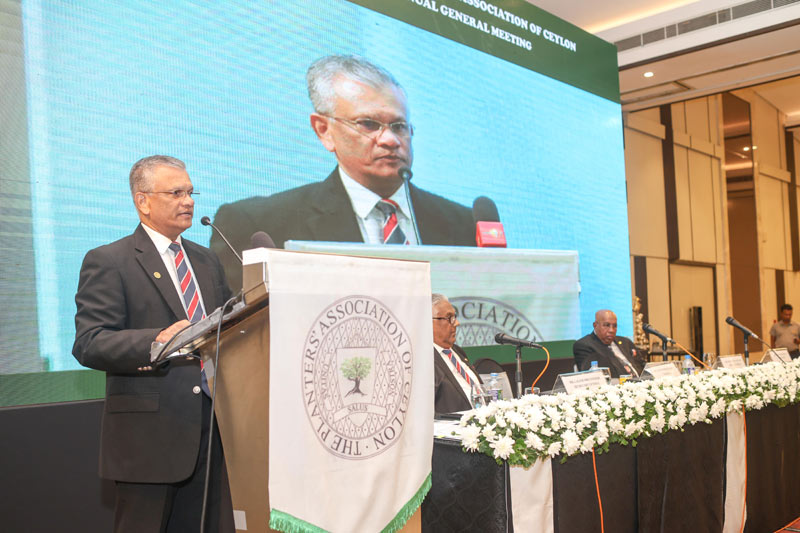Tuesday Feb 17, 2026
Tuesday Feb 17, 2026
Wednesday, 18 September 2024 04:15 - - {{hitsCtrl.values.hits}}

Planters' Association of Ceylon Incoming Chairman Sunil Poholiyadde
The Planters’ Association of Ceylon (PA) Incoming Chairman Sunil Poholiyadde on Saturday outlined the need for modernisation to sustain the industry, which has lost 50% of its workforce since 1992.
Speaking at the 170th Annual General Meeting (AGM) held last week, he said with global competition rising and labour shortages affecting production.
“Since 1992, we have lost 50% of our workforce, which is evident in our production figures. I doubt Sri Lanka will reach even 250 million kilograms of tea this year, although we had initially expected over 300 million,” he said.
Poholiyadde was of the view that the industry must be innovative to maintain production levels across all crops and urged the industry to embrace mechanisation and automation.
“It might be in our culture to resist change, but I believe we must become more receptive to technology. If we are to maintain production levels across all crops, we must be innovative. The technology exists globally; it is just a matter of us embracing and implementing it,” Poholiyadde insisted, adding that mechanisation could provide relief in the face of a diminishing labour force.
He said time has come for innovative thinking, new technology, mechanisation and automation in the field and factory. “These are key areas we need to focus on in the near future,” he pointed out.
Diversification was another key focus of his address. Poholiyadde pointed to the stalled oil palm initiative as an example of how Government policy can hinder progress. “Companies began diversifying—particularly in the low country, where we introduced a fourth crop with oil palm in the early 2000s. While the PA had planned to plant 20,000 hectares of oil palm in the early 2000s, only 11,000 hectares were completed before the project was halted,” he claimed.
Poholiyadde emphasised the need for a diversified approach to agriculture in the face of climate change, noting that different crops are better suited to varying levels of rainfall. “There are areas receiving 6,000 mm of rainfall, whereas oil palm requires only 3,000 mm. The return on investment (RoI) with such high rainfall will not be achieved. Some areas are better suited for rubber, while others could be utilised for different crops,” he explained.
He also touched on the importance of upholding the agreements made during the privatisations process of the industry, which included diversification as a central strategy. “Diversification was a primary consideration during the privatisation process. The PA should uphold the spirit of privatisation by exercising our rights and ensuring that authorities respect the agreements made during that time. It is our duty as planters to ensure returns if we want to gain the confidence of investors and shareholders,” he said, underscoring the need for continuous innovation and adaptation.
Poholiyadde called on members of the association for their support as they navigate the industry’s evolving challenges.
Recognising the hard work already accomplished, he reiterated that the task ahead is far from over. “This is a continuous process, and I look forward to your support and cooperation in taking this association forward,” he said.